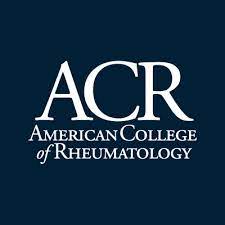New Guideline for Rheumatologists Treating Kawasaki Disease
ACR partners with the Vasculitis Foundation to establish a new guideline that addresses diagnostic issues relating to Kawasaki disease, a rare vasculitis that inflames the blood vessels.

The American College of Rheumatology (ACR) and the Vasculitis Foundation (VF) partnered together to establish a series of vasculitis guidelines. As the final installment, the Kawasaki disease guideline follows 3 others that were released in July 2021.
Kawasaki disease is extremely rare, with less than 20,000 new cases per year in the US. Patients are typically children under the age of 5. The blood vessels in these patients become inflamed, especially the ones that supply blood to the heart.
“Kawasaki disease continues to be an area of evolving understanding in clinical treatment,” Mark Gorelik, MD, Assistant Professor at Columbia University Vagelos College of Physicians and Surgeons, lead investigator of the guideline said in a statement. “There are various degrees of severity in this disease and a set of complications and therapies that rheumatologists should be aware of. These guidelines will help clinicians better treat patients by augmenting existing guidelines from the American Heart Association, especially for complex patients seen by rheumatologists.”
The Recommendations
There are 2 recommendations in the new guideline that stand out because they vary from previous standards. Higher risk patients should be treated with shorter courses of corticosteroids at the time of diagnosis. Prior to the new guideline, physicians used the same approach to treat all patients with the disease.
The second new recommendation addressed dosing for aspirin therapy. There’s no evidence to indicate a difference in effectiveness between high or low doses preventing vascular complications, so each physician should use their own discretion.
The guideline consists of 11 recommendations for treatment. An initial treatment with intravenous immunoglobulin (IVIG) for patients when they’re first diagnosed is a good practice statement that applies across the board. Also, an ungraded position statement on the use of either non-glucocorticoid immunosuppressive therapy or glucocorticoids for patients with acute presentations and persistent fevers after repeated treatment with IVIG.
According to Gorelik, the central therapy for patients is intravenous immunoglobulin and it should be administered immediately following a diagnosis. Timely treatment of incomplete Kawasaki disease, aspirin therapy, and obtaining an echocardiogram are highly recommended. As for conditional recommendations, the use of IVIG with other adjuvant agents for patients with high-risk features for IVIG resistance and/or coronary artery aneurysms was listed.
The Development
Experts utilized Grading of Recommendations Assessment, Development and Evaluation (GRADE) methodology, which follows suit for many ACR guidelines. During the development of the guideline, a novel multisystem inflammatory syndrome (MIS-C) among children emerged alongside the COVID-19 pandemic.
Because some of the characteristics of MIS-C can be suggestive of Kawasaki disease, the ACR focused an independent clinical guidance on MIS-C which was published with the recognition that a thorough understanding is still needed to understand the relationship between the 2 conditions.
“Based on clinical experience with many MIS-C patients, recognition and differentiation of MIS-C from classic Kawasaki disease is important. Patients who meet criteria for Kawasaki disease should be treated using the therapies discussed in this guideline. Additional study is needed to determine optimal treatment for MIS-C with and without Kawasaki disease features,” Gorelik said.